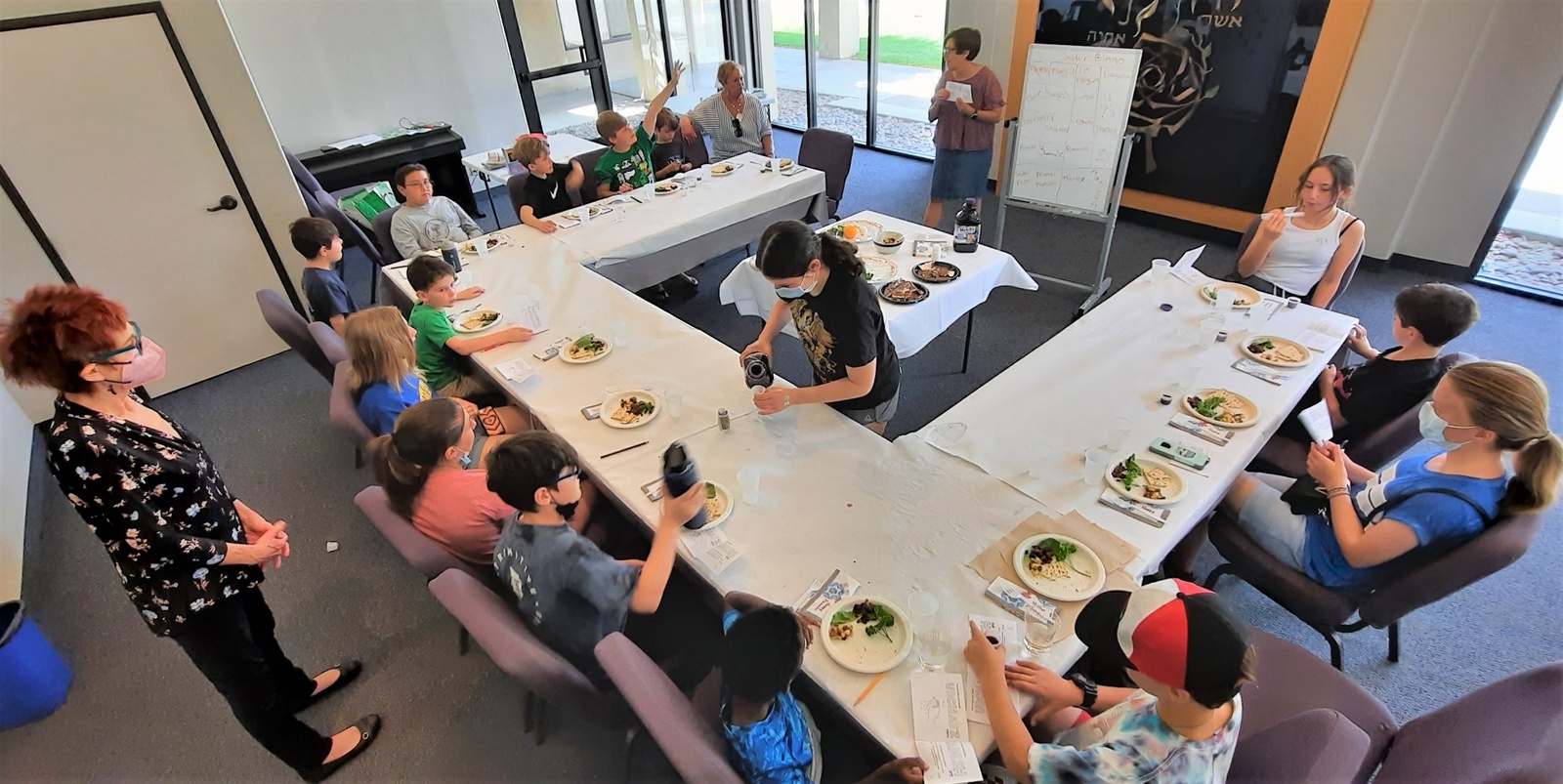 JustTheFacts Max
JustTheFacts Max![]() -
April 11, 2022 -
Religions -
Passover
Haggadahs
-
5.2K views -
0 Comments -
0 Likes -
0 Reviews
-
April 11, 2022 -
Religions -
Passover
Haggadahs
-
5.2K views -
0 Comments -
0 Likes -
0 Reviews

Before the ancient Jews fled Egypt, their firstborn children were "passed over" and spared from death, thus dubbing the holiday "Passover."
Jews observe the weeklong festival with a number of important rituals, including a traditional Seder (literally "order"), a festive meal in which the Haggadah (literally "to tell") is recited in a set order.
During the entire duration of the holiday, it is forbidden to eat leavened food products (such as bread and pasta) since the Jewish tradition states that in their haste to escape from Egypt, the Jews did not have enough time to wait for the bread to rise. Instead, they ate matzah, unleavened bread.
On Sunday, April 10th, 2022, Temple Sinai's Community Religious School enjoyed a Passover celebration.
It began with baking chocolate-covered matzah and charoset (a sweet paste made of fruit and nuts, symbolizing the mortar the slaves used to build the Egyptian pyramids) while practicing naming the ingredients in Hebrew.
Each student was presented with their own Haggadah, a book read during the traditional Seder meal, retelling the story of Passover.
The students colored a symbolic Seder Plate that includes many food items, each representing the different aspects of Passover.
The story of Passover was acted, with mean king Pharaoh negating the freedom of his Hebrew slaves. The unfortunate Egyptian people suffered 10 plagues, leading to the Israelite's exodus from Egypt.

Our students participated in a mini-Seder, savoring traditional foods while reading their colorful Haggadahs.
Palm Desert Temple Sinai’s Religious School P...
By JustTheFacts Max![]() 0
0
0
1026
3
0
0
0
1026
3
3 photos

Desert Local News is an invitation-only, members-based publication built on fact-checked, non-biased journalism.
All articles are publicly visible and free to read, but participation is reserved for members—comments and discussion require an invitation to join.
We cover local, state, and world news with clarity and context, free from political agendas, outrage, or misinformation.